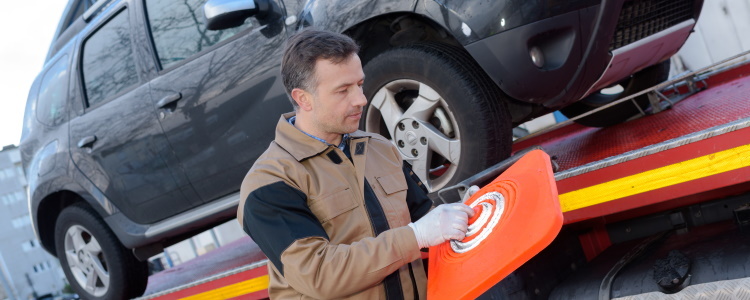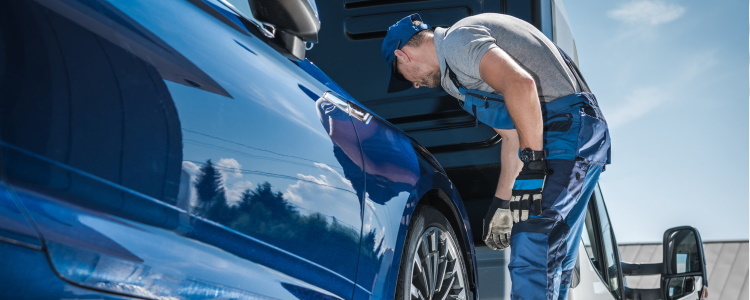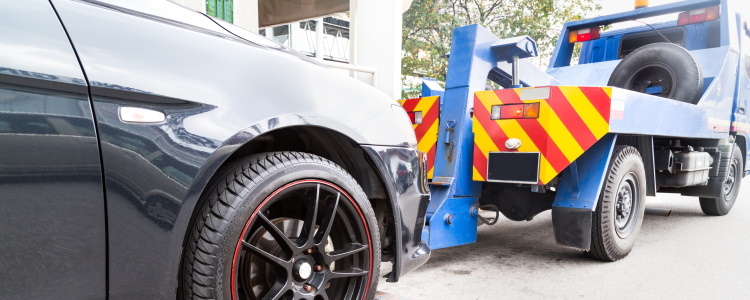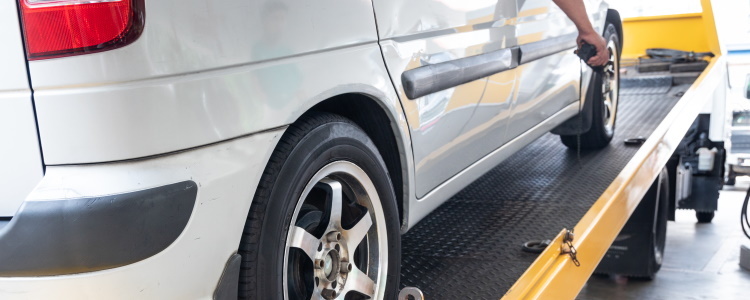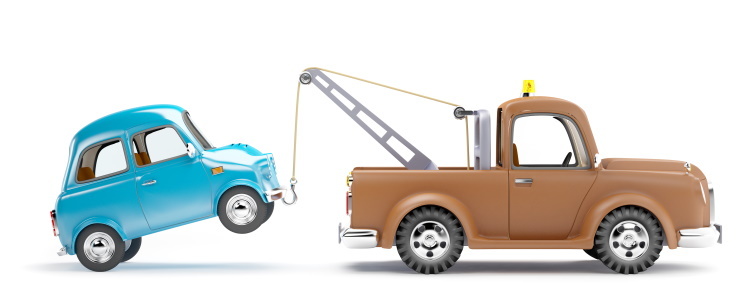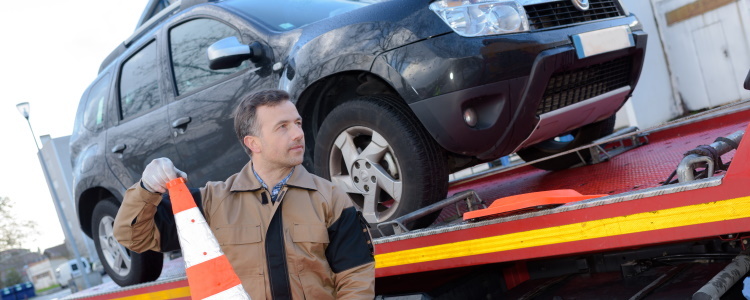After a repossession, you may have checked your credit score and found it's lower than it used to be. Let’s take a closer look at why your credit score drops after a repossession, and what you can do to repair your credit after one.
What Happens After a Repossession?
 Typically, a repossession happens after you default on your car loan, so your lender hires a recovery company to come and take your vehicle. Usually, this is because you missed one too many payments, or maybe only one payment, depending on your lender and the language in your loan contract.
Typically, a repossession happens after you default on your car loan, so your lender hires a recovery company to come and take your vehicle. Usually, this is because you missed one too many payments, or maybe only one payment, depending on your lender and the language in your loan contract.
Often, lenders sell repossessed cars at auction to cover the balance owed on the loan. If your lender doesn’t get the full amount that was owed at the auction, you’re responsible for paying the remaining balance, called a deficiency balance. If it's not paid right away, the balance is normally sent to a collection agency, harming your credit and lowering your credit score even further.
A repossession drops your credit score, and it can remain on your credit reports for up to seven years. Not only is your score lower, but your credit reports now reflect a default and repo, and possibly other negative marks – such as late payments – that come with a repossession.
A recent repo on your credit reports is a red flag to most auto lenders, since a default tells them that you stopped making payments, and your credit score drops. But you can work toward repairing your credit. It’s also possible to get another car loan after a repossession if you work with the right lenders.
Repairing Your Credit After a Repo
While it seems dismal immediately following a repossession, the negative impact on your credit score lessens over time. You may not get approved for a car loan within one year of a repo by some subprime lenders, but keeping up with your other bills is one of the best ways to repair your credit score.
Here’s a breakdown of how your credit score is calculated using the FICO scoring model, which is the most commonly used model among auto lenders:
- Payment history (35%) – Your history of making payments on loans and some bills.
- Amounts owed (30%) – How much you owe across all loans and lines of credit, and how much your credit card balances are compared to your credit limits.
- Length of credit history (15%) – How long you’ve had accounts open, and how long you’ve been using credit.
- Credit mix (10%) – Factors in the different types of credit you’re using.
- New credit (10%) – Factors in how many times you ask for new credit.
Payment history is the biggest part of your credit score, since your credit score is essentially a grade on how well you repay creditors. So, one of the best ways to repair your credit score is to keep up with your expenses. Missed and late payments can also remain on your credit reports for up to seven years.
Another easy way to help repair your credit score is to leave rarely used credit cards active. Closing credit accounts reduces your available credit and can lower your score. And while you may not be using that credit card, simply closing it can have the opposite effect you wanted.
Additionally, avoid opening multiple new credit accounts in a short amount of time. This can lower your score, since the credit reporting agencies see borrowers who open multiple lines of credit in a short time as higher risks.
Take the time to review your credit reports as well, since you should see what auto lenders are seeing. You can request your credit reports for free, once every 12 months*, from all three of the major credit reporting bureaus. Each is likely to have different information reported, so comb through them and work to remove any errors or discrepancies to help raise your score.
*ACE Tip: You can request your credit reports for free once every week through April 2021. This is so consumers can keep an eye on their credit reports during the coronavirus pandemic. After April of 2021, it will resume to once every 12 months again. Your reports can be requested by visiting www.annualcreditceport.com
Getting a Car Loan After a Repossession
You probably won’t get approved for a car loan by traditional lenders for a few years after a repossession, but you still have options. There are dealerships that don’t normally use your credit score to determine your ability to repay an auto loan, and there are special finance dealers for bad credit borrowers.
Buy Here Pay Here Dealerships
Buy here pay here (BHPH) dealerships often advertise “No credit? No problem” to their customers, which is actually the case most of the time. These dealers don’t use third-party lenders, because they’re also the lender. This is called in-house financing, and they’re more concerned with your ability to make the car payments each month.
Even though you may have a repossession on your credit reports, and even if it's less than a year old, a BHPH dealership isn’t likely to review your credit reports. If you have enough income for the auto loan and a large down payment, you could get into your next vehicle rather quickly following a recent repo. It may not be your dream car since BHPH lots only sell used vehicles, but if you need transportation right away, this could be a great option.
However, BHPH dealers often don’t report loans or timely payments to the major credit reporting agencies, meaning your credit score may not improve from the auto loan. Check with the dealership and ask if they report loans if you want to repair your credit.
Special Finance Dealerships
Another option to explore is a dealer with a special finance department that works with subprime lenders. Subprime, or bad credit, lenders review your credit reports, but they also look at your income and living stability during the approval process.
Additionally, they report loans to the credit bureaus, and if you keep up with the payments, you can help repair your credit score with a subprime car loan. At the same time, some subprime lenders may be hesitant to approve a borrower with a repossession that’s less than a year old.
Since subprime lenders can work through a franchised dealership’s special finance department, you may also qualify for a certified pre-owned (CPO) vehicle. These cars are usually only a few years old, and typically have low mileage since many are just coming off-lease. CPO vehicles are also inspected by a manufacturer-certified mechanic, and most come with a factory-backed warranty which can help save you cash on covered repairs down the line.
Finding a Dealership With Bad Credit Options
After a repossession, you can often get into a car even with a tarnished credit score. You may not qualify for the best rates, but there are lenders that work with bad credit borrowers, and those with a repossession on their credit reports. Finding these dealers with bad credit lenders is the next step, and we want to help.
Here at Auto Credit Express, we connect poor credit borrowers to special finance dealerships for free. To get started, simply fill out our auto loan request form. There’s never an obligation to buy, and we’ll connect you to a dealer near you that knows how to handle unique credit situations.
